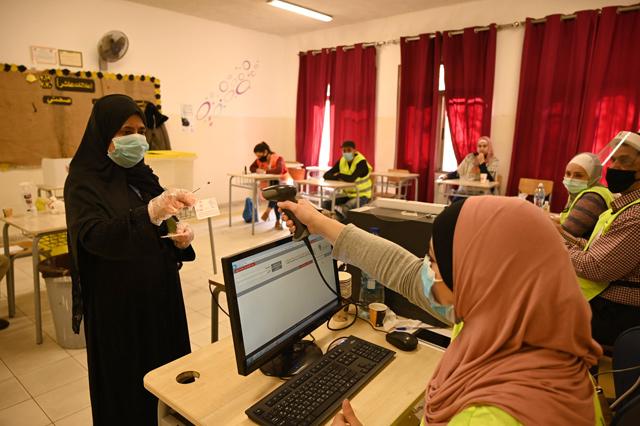You are here
SIGI report casts light on women’s representation in parliament
By Rana Husseini - Dec 07,2020 - Last updated at Dec 07,2020
AMMAN — A local organisation on Monday said despite the low female turnout in the recent parliamentary elections, the increase in number of women candidates proved their high interest in being part of the legislative and decision-making process.
The findings were made during a press conference organised by Solidarity Is Global Institute (SIGI) at the organisation’s headquarters and also via video conferencing.
During the event, SIGI launched its final report on the Eye on Women Programme to Monitor the 2020 Elections from a Gender Perspective.
“Although women’s representation in the Lower House of Parliament declined by 11.5 per cent, there were 369 female candidates out of 1,717 who ran for the elections, which is an indication that women are proving themselves in political life,” SIGI Executive Director Asma Khader said.
It also proves that women themselves are becoming more confident in running for elections and to become part of the legislative and decision-making process, Khader told reporters.
The 2020 parliamentary elections resulted in 15 women winning seats only through designated seats that were allocated by the women’s quota that was introduced for the first time in 2003.
In the 2016 parliamentary elections, five women won seats in direct elections in addition to the allocated 15 seats via women’s quota.
Khader noted that there are “legislative and social reasons” that contributed to the decline in numbers.
She also pointed out that “the percentage allocated for women in Parliament is unfair”.
“There is a need to allocate a seat for women in each of the 23 constituencies or a minimum of 30 per cent female representation in the Lower House of Parliament,” Khader stressed.
She also pointed to the current election system that is carried out through proportional lists, which pushed many male candidates to “bluntly call for electing them only so that they would not lose their seats to women in direct competition”.
Khader also referred to “the patriarchal society that still perceives women as unfit to assume leadership and decision-making positions and that their role should be confined to having children and staying home”.
Meanwhile, the general coordinator for the Eye on Women coalition Ahmad Ajarmeh disclosed some of the barriers that female candidates faced before, during and after the elections.
Some of the barriers according to Ajarmeh were pressures exerted by some female candidate’s families to drop from the race, while others were subjected to cyberbullying and had their campaign photos and material sabotaged.
He called for increasing the number of seats allocated to women in future parliamentary elections and adopt the closed list system so that it would ensure gender balance and fairness.
He also pointed out the need to include more women in decision-making positions in election monitoring and administrative committees and to ensure the material used by the Independent Election Commission (IEC) to promote the elections is gender-sensitive.
Ajarmeh highlighted the need to cancel the condition of resigning from jobs that is imposed on individuals who wish to run for the elections.
“Women are the most affected by this decision because they do not have the same financial means as male activists and many fear failing in the elections so they prefer to stay at their jobs instead of losing both the elections and their source of income,” Ajarmeh said.
The Eye on Women Programme to Monitor the 2020 Elections from a Gender Perspective was accredited by the IEC as one of the monitoring supervisory bodies.
Before 2003, when the six-seat quota was introduced and later increased to 15 seats, only one woman, Toujan Faisal, managed to win a seat in direct competition.
The Eye on Women programme aims to empower women, emphasise the importance of equal opportunities for Jordanian women, as well as, ensure their active participation in the political, social, economic and cultural decision-making process.
The programme includes several activities including monitoring the 2020 parliamentary elections from a gender perspective along with motivating and building the capacity of women candidates and voters.
Related Articles
AMMAN — Solidarity Is Global Institute (SIGI) on Tuesday praised the Independent Election Commission (IEC) for its quick response and cooper
AMMAN — A local organisation on Sunday called on women wishing to run for the upcoming parliamentary elections to form their own lists and n
AMMAN — Female MPs and activists have called on the government to take advantage of the Kingdom’s marking of the centennial of the foundatio

















